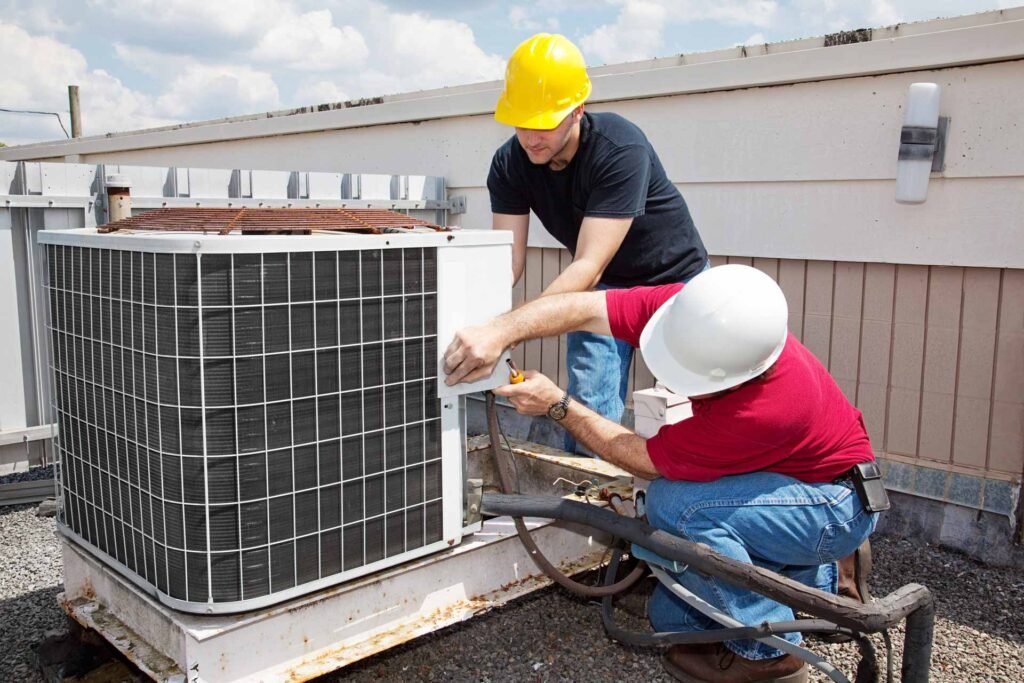Deciding between repairing or replacing your air conditioning unit can be stressful, especially when summer heat is in full swing or the system breaks down unexpectedly. Homeowners often grapple with whether it’s worth investing more money into an older unit or starting fresh with a new one. While repairs seem more affordable in the short term, long-term reliability and energy savings are crucial factors.
We will explore the key situations when a repair might do the job, and when a full replacement is a more practical and financially sound choice. This honest breakdown from an HVAC contractor’s point of view aims to help you decide with clarity, confidence, and an understanding of what’s truly right for your home and budget.
How to Decide Between Repairing or Replacing Your AC Unit
1. Consider the Age of the Unit
One of the first things to evaluate when deciding whether to repair or replace your AC unit is its age. Most air conditioning systems have a lifespan of around 10 to 15 years. If your unit is under ten years old, repairs might still be worthwhile, especially if the problem is minor, like a capacitor failure or refrigerant leak.
However, their internal components wear out as systems age, and even well-maintained units start losing efficiency. If your AC is over 12 years old and frequently breaks down, you’re likely throwing money at temporary fixes.
Older units also tend to operate with outdated refrigerants like R-22, which are no longer environmentally approved or readily available, making repairs more expensive. If your system is aging and its performance is declining despite multiple service visits, it might be time to invest in a modern, efficient model that saves you money and stress in the long run.
2. Compare Repair Costs vs. Replacement Costs
Cost is often the most pressing factor in any repair or replacement decision. A good rule of thumb many HVAC contractor use is this: if the repair will cost more than 50% of the price of a new unit, replacement is generally the better option. Small fixes, such as replacing a contactor, thermostat, or capacitor, are relatively low in cost and may extend your unit’s life by a few years. However, the expenses can quickly add up when facing major repairs like a failed compressor, leaking coils, or electrical board issues. It’s also essential to factor in the energy savings a new unit can provide.
High-efficiency systems often pay for themselves over time through lower monthly utility bills. Always get a detailed quote for the repair and a potential replacement to compare the long-term value, not just the upfront cost. A higher initial investment often brings better returns over the years.
3. Evaluate the Frequency of Breakdowns
If you call for AC repairs more than once or twice a year, it’s a clear sign the system is reaching the end of its usable life. An air conditioner should be dependable during the peak cooling months. Constant breakdowns cost money and create stress and inconvenience, especially during heat waves or weekends when service fees might be higher. Frequent repairs are often a symptom of multiple failing components within the system.
Even if each issue seems isolated, they can point to a larger problem: the system’s age and inefficiency. Replacing the unit may offer peace of mind and consistent comfort instead of enduring the anxiety of wondering when the next issue will occur. If maintenance and repairs have become routine rather than occasional, it’s worth considering a replacement to regain stability and efficiency in your home’s cooling.
4. Check Energy Efficiency and Utility Bills
Rising energy bills can be a subtle indicator that your AC system is no longer operating as efficiently as it once did. Older air conditioners typically have lower SEER (Seasonal Energy Efficiency Ratio) ratings and consume more electricity to achieve the same level of cooling as a newer model. If your energy bills are climbing despite no change in usage patterns, your AC may be overworking to maintain temperatures.
Modern AC units are designed with significantly higher efficiency standards, using smarter technologies like variable-speed motors and advanced refrigerants. These systems cool more evenly and do so with less strain on your power bill. Over a few summers, a high-efficiency replacement unit can save hundreds, if not thousands, in operating costs. Monitoring your monthly energy use alongside your AC’s performance gives insight into whether it’s time to upgrade to a more efficient solution.
Choosing between AC repair and replacement involves more than just a quick cost comparison—it requires evaluating your unit’s age, condition, efficiency, and overall performance. We’ve explored critical points that can help you weigh each option more confidently, from repair costs and energy efficiency to breakdown frequency and indoor air quality.
If your unit is relatively young and the issues are minor, a repair might be enough to keep things running smoothly for a while longer. But if your system is older, inefficient, and struggling to keep up, replacing it can offer long-term savings, better comfort, and greater reliability. Making the right decision means looking beyond the immediate problem and considering the long-term value for your home, budget, and peace of mind. Tour of destination.
